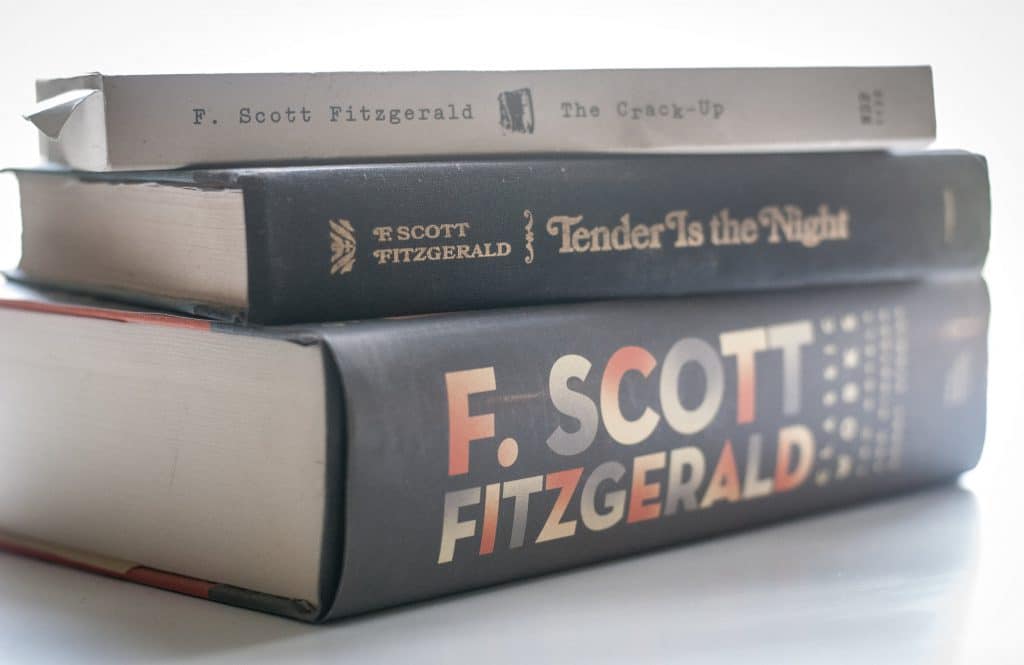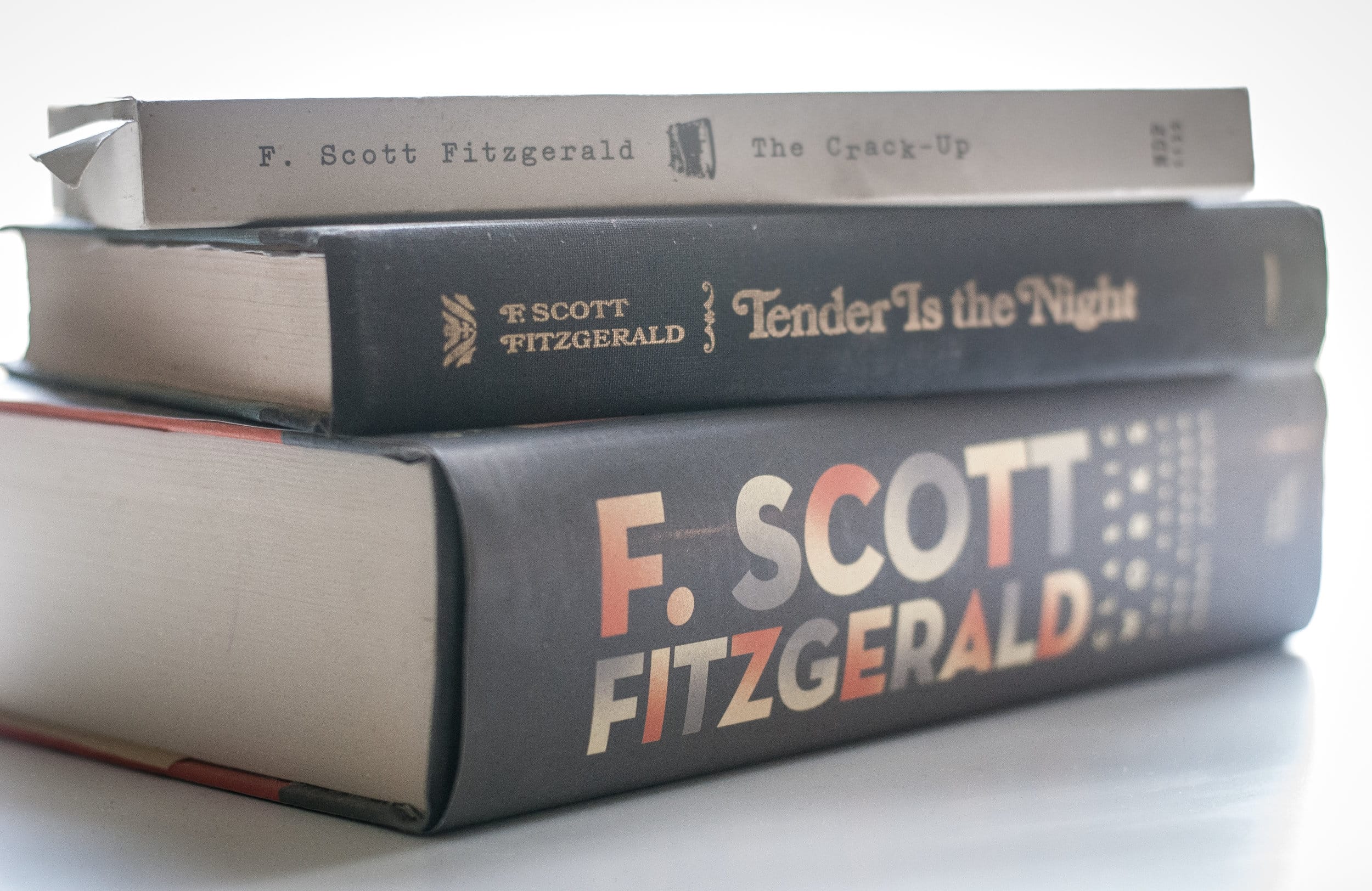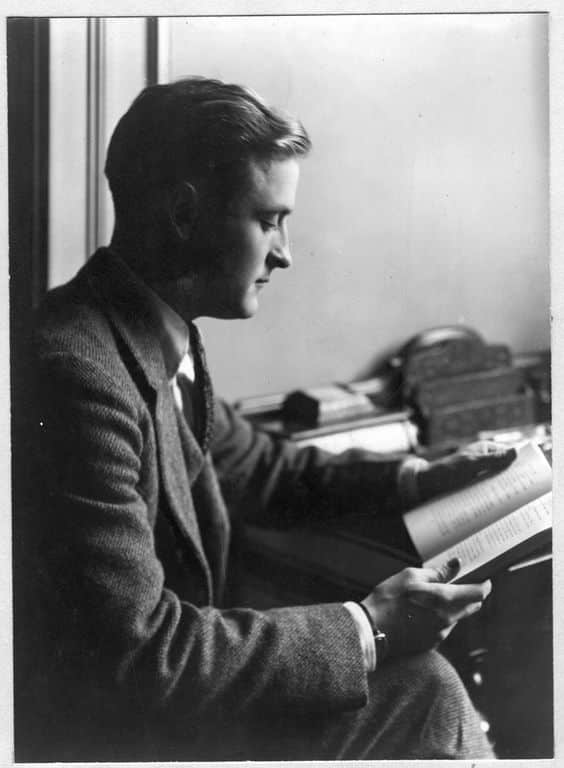
5 Life lessons from F. Scott Fitzgerald
Photo courtesy of Shay Carlson
SHAY CARLSON, STAFF WRITER
March 26, 2017 marked the 97th anniversary of the world first becoming acquainted with one of the most unmistakable figures of the Jazz age. In 1920, Scribner publishing house decided to take a chance on a young Princeton University dropout named F. Scott Fitzgerald and with the publication of his first book, This Side of Paradise, would unwittingly go on to shape the literary legacy of the 20th century.
Plagued throughout his life by his own vices and poor decisions, Fitzgerald died tragically young of a heart attack at the age of 44. Despite the missteps of Fitzgerald’s life, he left his readers many words of wisdom throughout his work, letters and relationships.
In honor of Fitzgerald’s debut anniversary, here are five life lessons that he taught throughout his life:
1. Just because you have talent doesn’t mean it will be easy
A writer praised for his innate talent for the written word, Fitzgerald often found his talent to be a source of dissatisfaction. Often feeling he was not living up to his potential as a writer, Fitzgerald continuously sought after the apex of his work with every novel he penned. Fitzgerald responded to praise from Ernest Hemingway by saying, “What little I’ve accomplished, has been by the most laborious uphill work.”
Known to obsess and stress over his work, Fitzgerald sent in edits and rewrites for The Great Gatsby until the week it was published. Fitzgerald teaches us that even those considered inordinately blessed with talent can struggle with the work required to realize their ability.
2. Always try again
“For what it’s worth: it’s never too late or, in my case, too early to be whoever you want to be. There’s no time limit, stop whenever you want. You can change or stay the same, there are no rules to this thing. We can make the best or the worst of it. I hope you make the best of it. And I hope you see things that startle you. I hope you feel things you never felt before. I hope you meet people with a different point of view. I hope you live a life you’re proud of. If you find that you’re not, I hope you have the strength to start all over again.”
While this quote is often attributed to F. Scott Fitzgerald, the brilliant passage actually belongs to Eric Roth, the screenwriter of the movie The Curious Case of Benjamin Button which is based on the short story of the same name written by Fitzgerald. Ironically, the passage was written to help clearly express the main character’s view on life and the human condition and in so doing echoes the views that F. Scott Fitzgerald himself most likely held.
A man never afraid to chase after his dreams, Fitzgerald showed no fear in fully expressing his sentiments to the world again and again regardless of the welcome they received. After the lukewarm reception of The Great Gatsby during his lifetime, Fitzgerald continued to write until his death, certain that his work would reach its potential eventually and become the great literary work he knew he was capable of writing, even if he had to start all over again several times. Regardless, Fitzgerald wasn’t afraid to make the best of it while he tried for fame. “We’ll just let things take their course and never be sorry,” he wrote.
3. Write it down
Often seen with a leather notebook in one hand, Fitzgerald was constantly taking notes of his thoughts and impressions knowing how vital one of those brief thoughts could become to his work.
Fitzgerald circa 1920 Photo Courtesy of Wikimedia Commons
In the memoir of Sheila Graham, Beloved Infidel, she quotes Fitzgerald as saying, “ You must begin by making notes. You may have to make notes for years… When you think of something, when you recall something, put it where it belongs. Put it down when you think of it. You may never recapture it quite as vividly the second time.”
Fitzgerald’s success as a writer was founded on his ability to recapture the atmosphere of the past. Though it may seem trivial at the time, writing down feelings and impressions afford a return ticket to something that may otherwise be forever lost within the boundless nature of time.
4. Edit for the finished work, not the first draft
In an article for The Saturday Evening Post in 1933, Fitzgerald expresses the need to look objectively at your work, even a piece that you may have worked very hard at, and not be afraid to get rid of it if it doesn’t fit seamlessly into the whole.
He writes, “ There are often occasions when such a decision is doubly difficult. In the last stages of a novel, for instance, where there is no question of junking the whole, but when an entire favorite character has to be hauled out by the heels, screeching, and dragging half a dozen good scenes with him.”
In writing as in life, sometimes things must be edited out in order for the whole story to come together, despite the amusement they offer.
5. Life should be lived like a verb
While it is no secret that Scott and Zelda led a life of extravagance and partying, Fitzgerald was a firm believer that life and writing should constantly be a moving, extraordinary experience. Whether forwards or backward, Fitzgerald recognized that time is always on the move and thus life should be approached with the same engaging imagination as a sentence driven forwards by verbs.
In a letter to his daughter, Scottie, in 1938 Fitzgerald writes: “All fine prose is based on the verbs carrying the sentences. They make sentences move…a line like ‘the hare limped trembling through the frozen grass,’ is so alive that you race through it, scarcely noticing it, yet it has colored the whole poem with its movement”.
Reflections of this view of life and literature are most notably found in The Great Gatsby, where Fitzgerald writes “I was within and without. Simultaneously enchanted and repelled by the inexhaustible variety of life”.
Throughout his writing, Fitzgerald reflected on the sentiments of the past, but always with the hopeful nature of a dreamer who believes that through hurling oneself at the future can the joys of the past be recaptured. With unabashed zeal Fitzgerald approached his life so that his future would be without regret.
“I’m not sure what I’ll do, but— well, I want to go places and see people. I want my mind to grow. I want to live where things happen on a big scale” Fitzgerald wrote. Throughout his calamities and faults, Fitzgerald was never afraid to live life like a sentence strung together by verbs: engaging, full of vivascity and always on the move.


